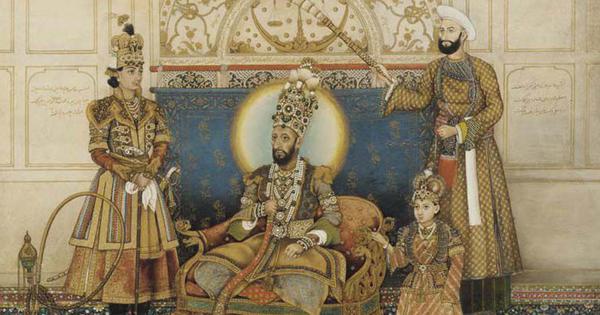Dawn
The water maids place the washbasin and water jug on an ornate piece of cloth; the towel maids are lined up, each with a different towel for wiping the face, nose and feet. The king wakes up. Everyone offers her respect and wishes him a good day. He goes to the tasht chowki, performs ablutions, offers namaaz and recites some verses while counting beads.
In the meanwhile, the wardrobe maids come carrying a brocaded trunk. The king changes his clothes. Look! The jasolni, the female usher, standing with folded hands, is saying, “Your Majesty, the physician is in attendance.” The order comes, “Hmm,” which means, “Call him in.” So the curtains are drawn. The usher is followed by the physician with a handkerchief covering his face. He offers salutations, feels the king’s pulse and departs.
A sealed drink called tabreed is brought from the medicine house; it is preserved in an urn covered tight with a piece of brocade that has a seal on top. The medicine maid…
